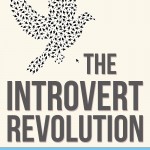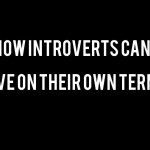
A life-changing injury disrupts more than your body. It affects routines, relationships, and your sense of control. For introverts, who often need time and space to process challenges, the experience can feel especially isolating. While the outside world expects visible progress and clear explanations, recovery usually unfolds privately and unpredictably.
Many introverts hesitate to speak openly about their pain or ask for support. That silence can create a disconnect between how others perceive their healing and what they’re actually experiencing. Recovery becomes something that happens in quiet moments, without recognition.
Healing from a serious injury is not just about physical treatment. It also involves reshaping your environment, adjusting expectations, and finding new ways to relate to yourself and others.
The Silent Impact of Injury on Introverts
Injury recovery can feel isolating, especially for introverts. Extended periods of rest may seem manageable, but they can lead to disconnection. While physical pain is more visible and measurable, emotional strain often goes unnoticed and unaddressed.
Introverts tend to internalize stress, making it harder to recognize when help is needed. Friends or family might interpret a quiet recovery as a sign that things are fine. This misunderstanding can leave introverts feeling unsupported, even when they are overwhelmed.
Routines that once brought comfort, like peaceful mornings, solo walks, or time spent reading, may no longer be possible. Losing these habits can unsettle your sense of stability. As energy shifts and physical limits become clearer, it’s common to feel ungrounded or out of sync with your usual self.
During this stage, many introverts begin to reflect on how to maintain their identity while living within new limitations. The focus often turns to creating a life that feels sustainable rather than returning to the way things were.
Finding Strength in Stillness
Introverts typically find comfort in quiet environments, but recovery can shift the meaning of stillness. When rest is no longer optional but required, it can feel heavy. Time once used for reflection may now be filled with discomfort or uncertainty.
Without familiar distractions or structure, deeper emotions may surface: grief, anxiety, frustration. While this self-awareness can be helpful, it also makes recovery mentally demanding.
Still, stillness has value. Writing, meditation, and creative expression are tools many introverts use to organize their thoughts and reduce emotional tension. These practices offer a sense of control during unpredictable times.
As recovery continues, small rituals, like making tea or spending time in nature, help restore a rhythm. These low-energy routines create grounding without requiring social effort, offering meaningful support throughout the healing process.
When the World Doesn’t See Your Pain
Some injuries are easy to recognize. Others leave no physical trace but continue to affect mobility, stamina, and focus. These invisible challenges are often misunderstood, especially when the person affected is unlikely to voice their struggles.
Introverts may avoid drawing attention to themselves, even when they are in pain. This can delay access to support or practical accommodations. The pressure to appear recovered can lead to more silence, making the journey even harder.
Falls often go unreported, yet they can lead to serious and lasting consequences. People may face ongoing pain, reduced independence, or cognitive difficulties. These realities are especially important in slip and fall cases causing disability, where damage is not always visible but still deeply affects daily life.
Acknowledging the impact of these changes is a crucial step in recovery. It allows space for more informed decisions, clearer boundaries, and greater self-respect. With this awareness, it also becomes easier to seek medical, emotional, or legal support when needed.
Navigating Emotional Recovery Without Noise
Recovering from physical trauma often includes an emotional aftermath. Routines are disrupted, independence is reduced, and the emotional weight of these shifts can build over time. For introverts, much of this processing happens quietly, which can lead to feeling unseen.
Solitude may help at times, but it can also amplify feelings of fear, sadness, or frustration. The pressure to stay strong or be positive makes it harder to speak about these emotions, even when they begin to affect daily life.
Emotional distress takes different forms. Some people feel a lingering sense of unease. Others withdraw further or lose motivation. Without tools to manage these feelings, they may deepen. Experts point out that physical injuries can contribute to emotional difficulties when the psychological impact of trauma is ignored.
Helpful responses don’t need to be complex. Writing, walking, or naming difficult emotions can bring clarity. These approaches often align well with introverted personalities, which tend to process thoughts internally. When needed, working with a therapist can provide structure and reassurance during recovery.
Healing emotionally is not always visible, but it remains essential. Responding with care instead of pressure allows progress to unfold more naturally.
Rebuilding a Life You Actually Want
As recovery progresses, priorities often shift. Many introverts use this time to reevaluate how they spend energy and what they want from daily life.
Healing can change how you relate to time, noise, and social interaction. You might need longer rest periods, fewer responsibilities, or quieter routines. These changes are not setbacks. They are signs that your body and mind are adjusting to protect your well-being.
Small decisions can support this transition. Limiting overstimulation, planning flexible days, and reducing commitments help create structure. These habits are especially useful when navigating fatigue or introvert overwhelm, which often surfaces during both physical and emotional recovery.
Rebuilding doesn’t require recreating your old life. Instead, it can be a time to design something that suits your current needs and values. This may include more rest, deeper relationships, or work that aligns better with your energy.
Living intentionally, rather than reactively, becomes the foundation for a future that feels both sustainable and meaningful.
Thriving Quietly, But Fully
Recovery from a major injury is complex. It can shift how you see yourself, your limits, and your place in the world. For introverts, much of that work happens internally, without validation from others. That doesn’t make it any less real.
Moving forward doesn’t require going back to who you were. It can mean choosing a path that reflects what you’ve learned, what you value, and how you want to move through the world.
Healing in quiet ways still counts. In many cases, it’s what makes long-term strength possible.










